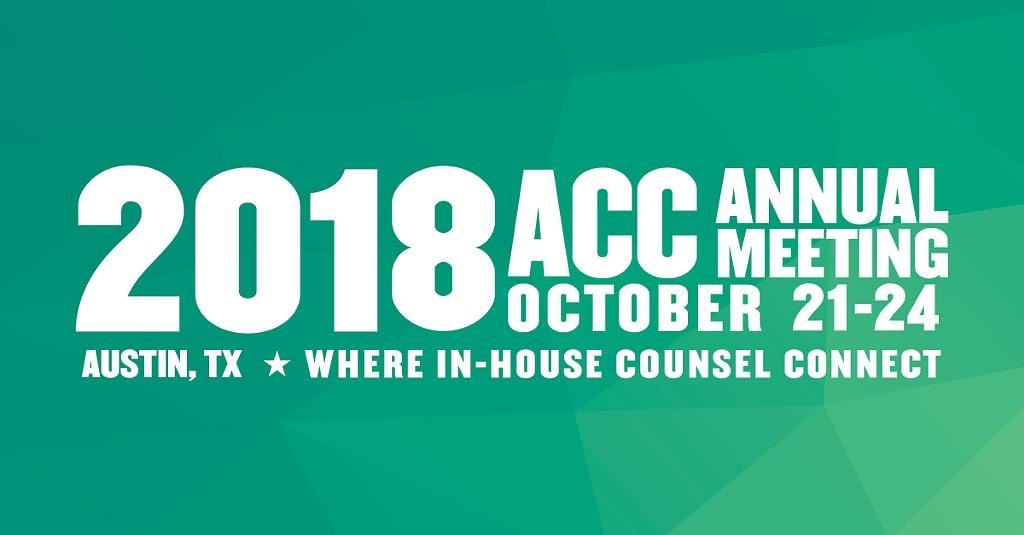ACC 2018: Innovation is More Than Just New Products. Recapping ACC’s Panel on “Who Innovates?”

 When thinking about innovation, it’s tempting to think about mobile phones, electronics, and gadgets of various shapes and sizes. In other words: products.
When thinking about innovation, it’s tempting to think about mobile phones, electronics, and gadgets of various shapes and sizes. In other words: products.
The primary focus of the discussion with Richard Brait and Dan Dagan of Siemens Canada’s corporate legal department, David Kruse, partner at Blake, Cassels & Graydon LLP (Blakes), and yours truly, Brian Zubert, heading up the Thomson Reuters Lab based out of Waterloo, was to debate whose job it is to innovate. Should corporate legal departments build and advance their own solutions, should law firms roll out solutions to better serve corporate counsel, or should solution providers offer up technology solutions to serve both?
The short answer is all of the above.
The longer answer is that both corporate legal departments and law firms should play to their strengths. If it’s core to your function and aligned with your skillsets, build it. If it plays to the strengths of a firm or a vendor, be a consumer and put the onus on them. The analogy: very few online software solutions would ever build, host and maintain their own servers anymore (they leverage the big cloud providers), so why would a law department develop their own software suites, unless it was an extremely custom/specific need?
The other piece to keep in mind: the cost of building is not isolated to just the initial build cost. There is cost within the maintenance and enhancements to said solution, as well as supporting the users of the solution.
The interesting underlying theme of the session was “innovation is more than products.” It’s also more than just building new solutions. Doblin has produced a list that there are in fact 10 different types of innovation and many play well to the strengths of corporate counsel.
Most notably: process innovation, often followed by innovation in structure, service, and delivery. All of these types of innovation are easily accessible to corporate counsel, as they are all related to how legal departments choose to operate and how they service internal teams that depend on them. Legal departments can behave differently than a law firm since they operate within a corporation instead of a partnership, which affords certain flexibilities in the drive to achieve operational efficiency.
The legal industry has already experienced a lot of non-product innovation over the past few years: fixed fee pricing as a form of profit model innovation; brand innovation as firms try to promote and amplify specializations in certain practice areas; and customer engagement innovation as firms and corporate counsel aim for greater transparency in matter planning, execution and billing.
For anyone looking to accelerate innovation within their organization, the keys are to start small, test new ideas with minimum investment and identify whether it’s a build, buy, or partner opportunity by gut-checking the solution versus their core competencies. And maybe most importantly, don’t limit thinking to developing new software solutions, look to all forms of innovation across all aspects of your service delivery.
If you’re interested in having a casual conversation about partnering with a vendor like Thomson Reuters, drop us a line and ask about the Labs. We love exploring new challenges!
This post was written by Brian Zubert, director, Thomson Reuters Labs.